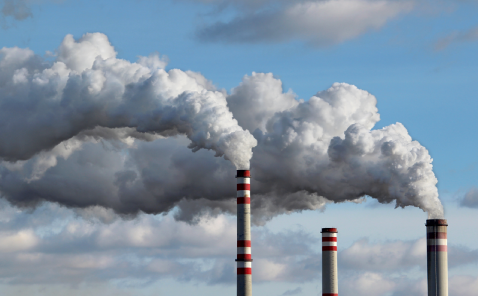Gas
Novozymes collaborates with Saipem to develop solutions for enzymatic carbon capture
Enzyme-based carbon capture technology has the potential to significantly reduce chemical and energy use
-
By ICN Bureau | December 13, 2021
Novozymes A/S and Saipem S.p.A. have entered into a collaboration agreement to develop solutions for enzymatic carbon capture, a biological and cost-effective alternative to traditional carbon capture. The ambition is to bring advanced enzyme-based carbon capture processes to the market.
“This collaboration is an important step towards sustainable and innovative solutions for lowering greenhouse gas emissions. As part of our strategy, Novozymes is committed to delivering biological solutions that enable a healthier planet and our collaboration with Saipem helps us fulfil our ambition to explore new growth opportunities while accelerating the battle against climate change,” says Amy Byrick, Executive Vice President of Strategy & Business Transformation at Novozymes.
Saipem, which is committed to the transition of the energy sector, has developed an enzyme-based carbon capture technology, which the two companies will work together to advance as part of the agreement. Saipem will provide the process and mechanical and equipment design while Novozymes will supply enzymes for Saipem’s customer base and further optimize the process through enzymes innovation.
Carbon capture and storage technologies can capture more than 90 percent of CO2 emissions from power plants and industrial facilities and is viewed as an indispensable tool to decarbonize the industrial sector.
While traditional processes rely on amines, enzymatic carbon capture uses carbonates and biological components in the form of enzymes to extract CO2 and does so at lower temperatures. This has the potential to significantly reduce chemical and energy use of the carbon capture process. Simultaneously, the use of enzymes instead of amines eliminates the need to clean wastewater as enzymes leave no waste product.
The United Nations Intergovernmental Panel on Climate Change endorses carbon capture as a key solution required to limit climate change. According to the International Energy Agency (IEA), carbon capture and storage technologies can cover 12% of the reductions in greenhouse gas emissions needed by 2050 for the energy sector to achieve net zero emissions by 2070. The capacity for carbon capture is expected to surpass 1 Gt CO2 by 2030 and rise to 5.6 Gt CO2 by 2050 according to IEA estimates.
